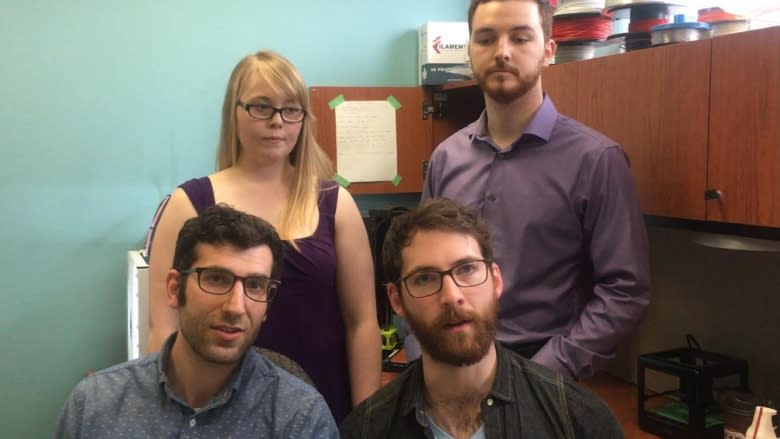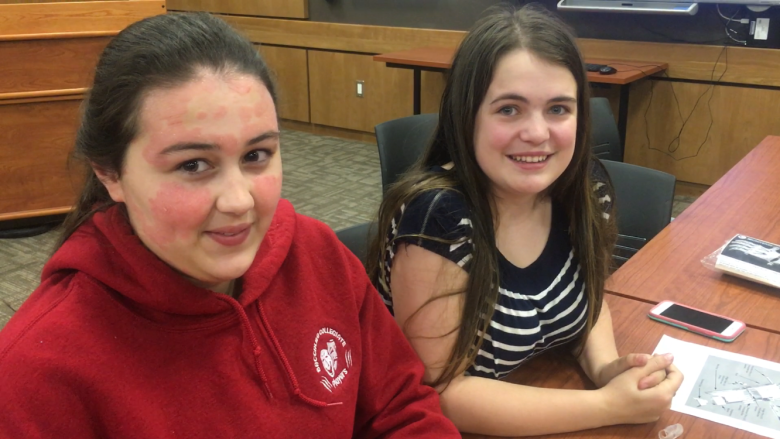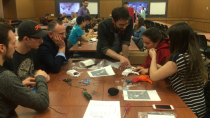Students lend a hand at the 'hand-a-thon' for children with disabilities
Memorial University medical students hosted a "hand-a-thon" Saturday to assemble 3D-printed plastic hands for disabled children in Zimbabwe. .
Two-dozen high school, engineering, and medical students gathered in a classroom at the med school, assembling pieces of plastic — for a good cause.
The idea came from Bo Simango, MUN Med 3D's assistive technology and outreach lead, who is currently back home in Zimbabwe, where about 900,000 people have some form of disability.
"He went into these communities and reached out to find appropriate recipients for these hands and personally went around and measured all of the dimensions necessary for us to custom-print these hands for children in Zimbabwe," said Stephen Ryan, co-founder of MUN Med 3D.
The hand-a-thon assembled 15 individualized hands, sewing them together with elastic band-like materials to mimic tendons.
"After it's printed you have to take off some of the support and make sure all the pins and pieces fit together," said Amy Feltham, an engineering co-op student with MUN Med 3D. "I had to sand down some pieces and make sure they were perfect for the event."
Michael Bartellas, project lead and co-founder of MUN Med 3D, said the hands were printed in different places to be brought in for Saturday's event.
"We've printed some stuff here, there's a school in Old Perlican — they printed a hand and brought it in — and we have a connection down in Iowa and they've been able to print a bunch of hands for us as well," he said.
Students from Baccalieu Collegiate, along with biology teacher Steven Trimm, joined the hand-a-thon for assembly of their own hand made by a 3D printer at their school.
"I thought it was a great idea because it combined biology, engineering and it had this humanitarian side to it as well," Trimm said.
'Fancy glue guns'
3D technology is growing, and evolving with every day uses and becoming a lot more accessible, said Ryan.
"The 3D printers we use are basically like fancy glue guns," he said.
The heated nozzle pushes plastic into a digitally preprogrammed shape.
"There's a bigger goal to all this as well, and it's to stimulate interest in 3D printing," Ryan said.
"Although it's a humanitarian effort and it's something we wanted to do as a lab group as a community outreach effort we wanted to engage with high school students and get them familiar with the possibilities and applications," he said.










